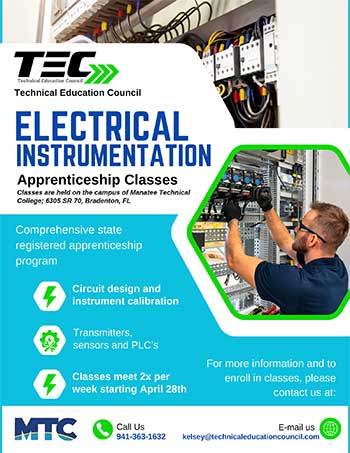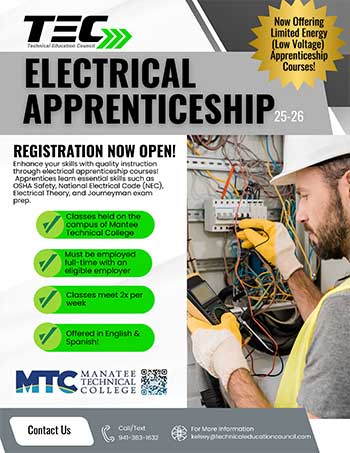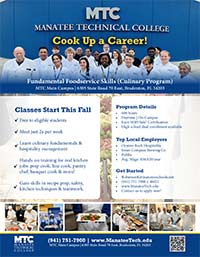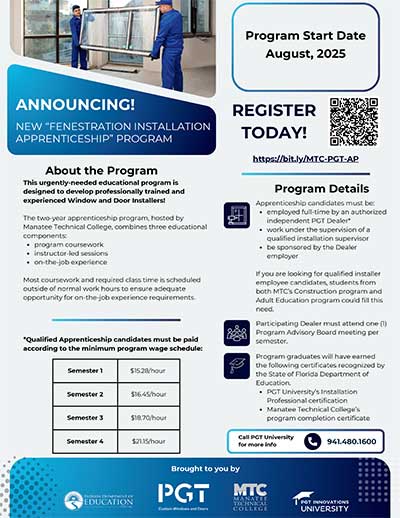Registered Apprenticeship
Program Sponsors

Apprenticeship Coordinator & Outreach
Technical Education Council (TEC)
941.363.1632
Culinary Arts and Early Childhood Pre-Apprenticeship
Manatee Technical College
Kevin Roberson
robersonk@manateeschools.net
(941) 751-7900 x 4602
Download Culinary Arts-Apprenticeship Flyer
(212 KB)
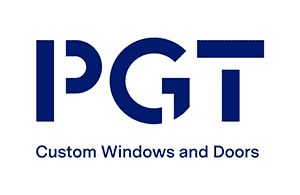
Windows and Doors Installation
Download PGT Flyer
(248 KB)
Email: pgtu-dealereducation@pgtindustries.com
Phone: 941-480-1600
PGTI – Corporate Offices, Venice, FL
Program registration: MTC Apprenticeship Application

Pharmacy Technician

Download Program Flyer
(248 KB)
Manatee Memorial Hospital
Contact: Carla Evans
Email: Carla.Evans@mmhhs.com
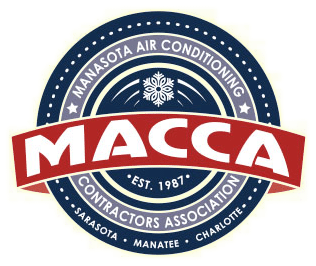
HVAC Mechanics and Installation
Manasota Air Conditioning Contractors Association (MACCA)
Contact: Robin Parsons – Apprenticeship Coordinator
Phone: 941-404-3407
Email: Robin@macca.us
Career Source Suncoast

Diane Seavers
Apprenticeship Navigator
(941) 229-0181
DSeavers@careersourcesc.com
Book time with Diane Seavers
3660 N. Washington Blvd.
Sarasota, FL 34234
What is Registered Apprenticeship?
*These programs are not accredited by COE.



